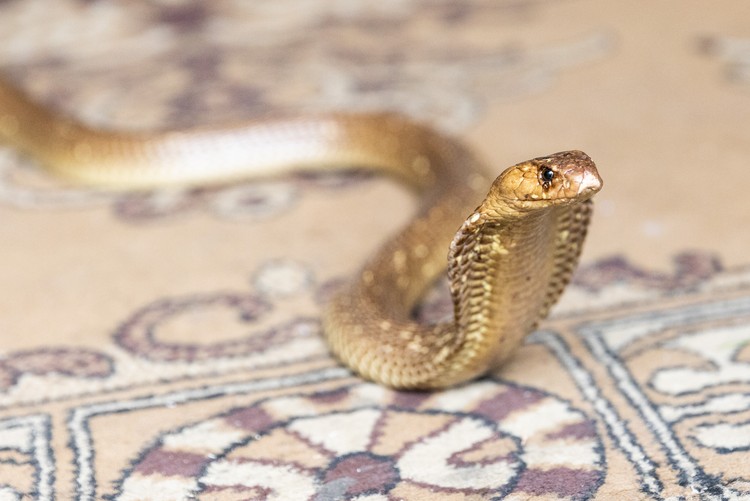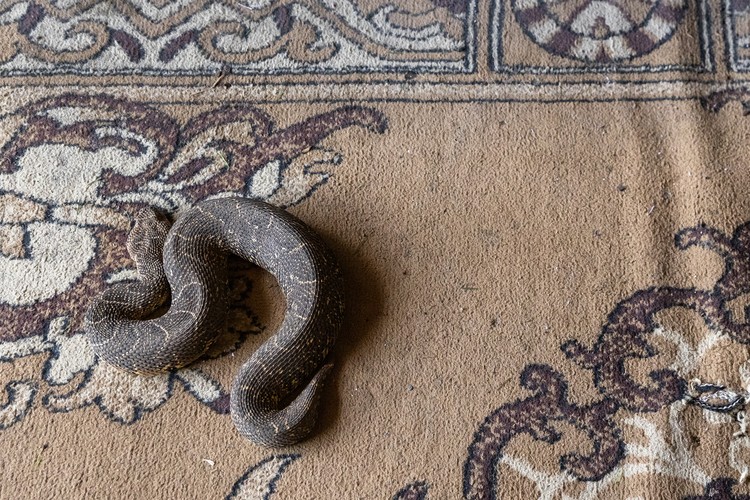Stocks of snake antivenom are dangerously low, experts warn
Doctors wait at least six months for orders of vital snake polyvalent antivenom
Herpetologists are worried that dwindling stocks of the South African-produced polyvalent snake antivenom will become a bigger problem in the coming months. Photos: Ashraf Hendricks
- South Africa’s only snake antivenom producer can’t make enough of its polyvalent antivenom, which treats bites of at least ten venomous snakes.
- Experts are worried that dwindling stocks are going to cause a bigger problem in the coming months, with many veterinarians now running out of antivenom.
- Johan Marais, CEO of the African Snakebite Institute, says it’s a “major disaster” that doctors and vets can’t get hold of the polyvalent antivenom.
Snake experts are raising the alarm over a shortage of South African-produced polyvalent snake antivenom, as a production backlog is causing waiting times of at least six months for the delivery of the life-saving snakebite treatment.
The polyvalent antivenom is the gold standard for the treatment of venomous snake bites and is produced in Johannesburg by the South African Vaccine Producers (SAVP), a subsidiary of the National Health Laboratory Service (NHLS). This antivenom (SAIMR Polyvalent Snakebite Antiserum SAVP) treats snakebites from the Black Mamba, Green Mamba, Jameson’s Mamba, Cape Cobra, Forest Cobra, Snouted Cobra, Mozambique Spitting Cobra, Rinkhals, Puff Adder and Gaboon Viper.
In the last few months, a massive production backlog at the SAVP has led to shortages at health facilities, especially among veterinarians, according to Johan Marais, herpetologist and CEO of the African Snakebite Institute.
“People’s dogs have died because for the last eight months veterinarians cannot buy antivenom. It really is a big problem,” said Marais.
He said he recently spoke to a medical doctor who couldn’t get his hands on antivenom.
Around 3,500 people are bitten by snakes in South Africa each year, with 800 hospitalisations, Marais estimated. Of these, only about 10% require antivenom treatment, and depending on the snakebite, treatments range from six to twenty vials per patient.
Marais estimates that there are 10 snakebite deaths per year in South Africa. The most recent cause of death data from Statistics South Africa found that there were 47 deaths from “contact with venomous animals and plants” in 2018.
Marais said that bites from Puff Adders and Mozambique Spitting Cobras must be treated quickly as they can cause severe tissue damage. If left untreated for too long, the patient may need multiple operations to repair the damage. He said the shortage has worsened in the last eight months. Marais said this has previously been a problem, but not quite as bad as the current situation.
Another challenge was that South Africa’s polyvalent antivenom is bought and used in other African countries, such as Kenya and Senegal. Kenya currently does not manufacture its own antivenom and experiences about 700 snakebite deaths per year, many more than South Africa.
The polyvalent antivenom treats bites by the Puff Adder (pictured above) as well as nine other venomous snakes in South Africa.
Mike Perry, founder of African Reptiles and Venom, supplies the SAVP with the raw snake venom used to produce the polyvalent antivenom. Perry said it takes a few months to produce the antivenom; but the venom he supplies in 2023 will only be part of the antivenom available in five years.
Perry explained that the snake venom he supplies to the SAVP is injected into horses in low doses over long periods of time. When the horses become hyperimmune to the venom, blood is drawn from the horses and the antibodies against the venom are separated from the blood.
NHLS spokesperson Mzimasi Gcukumana told GroundUp that the SAVP is “working around the clock” to reduce and ultimately eradicate the backlog of antivenom production.
Gcukumana said loadshedding has negatively affected antivenom production. He said the laboratory was able to supply “some provincial health departments and some private facilities, including 13 veterinary practices, during December to ensure there is adequate supply in the country”.
The laboratory said it plans to strategically place antivenom banks in high-risk areas across the country.
The National Department of Health spokesperson Foster Mohale said that it currently doesn’t have a contract with the producer for antivenom despite it being “an essential medicine”.
Mohale said the SAVP informed officials that the “difficulty in sourcing the material” was the reason for the current low stock. Mohale did not have statistics as each province often buys antivenom directly from the SAVP.
Support independent journalism
Donate using Payfast

Don't miss out on the latest news
We respect your privacy, and promise we won't spam you.
Next: Operation Dudula chases immigrants away from Joburg clinic
Previous: Families flock to Cape Town’s historic tidal pools
© 2023 GroundUp. This article is licensed under a Creative Commons Attribution-NoDerivatives 4.0 International License.
You may republish this article, so long as you credit the authors and GroundUp, and do not change the text. Please include a link back to the original article.
We put an invisible pixel in the article so that we can count traffic to republishers. All analytics tools are solely on our servers. We do not give our logs to any third party. Logs are deleted after two weeks. We do not use any IP address identifying information except to count regional traffic. We are solely interested in counting hits, not tracking users. If you republish, please do not delete the invisible pixel.


